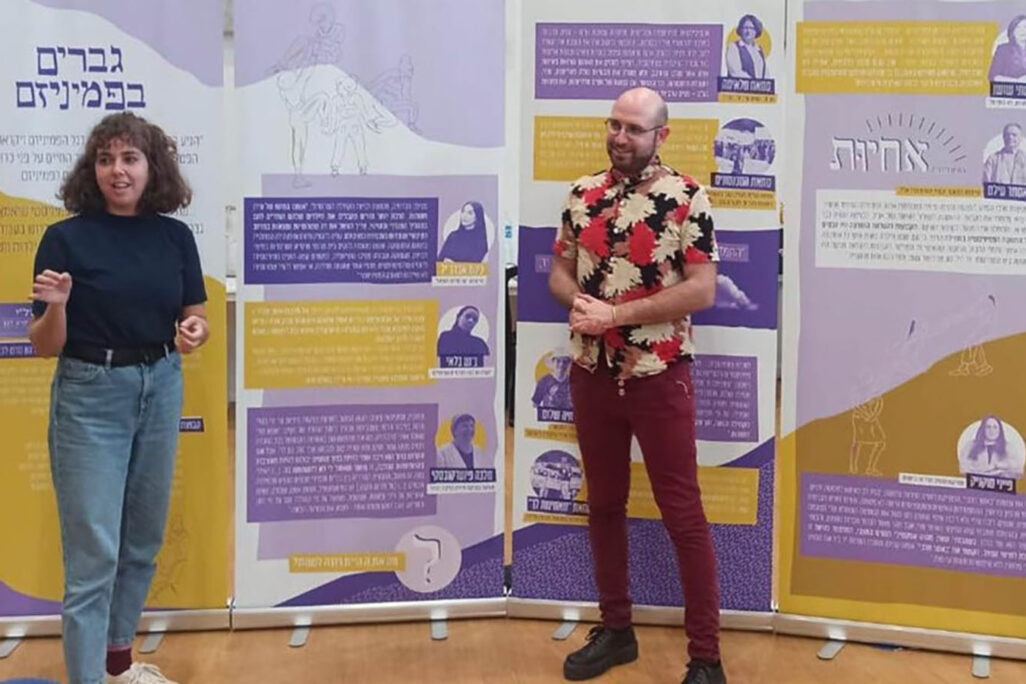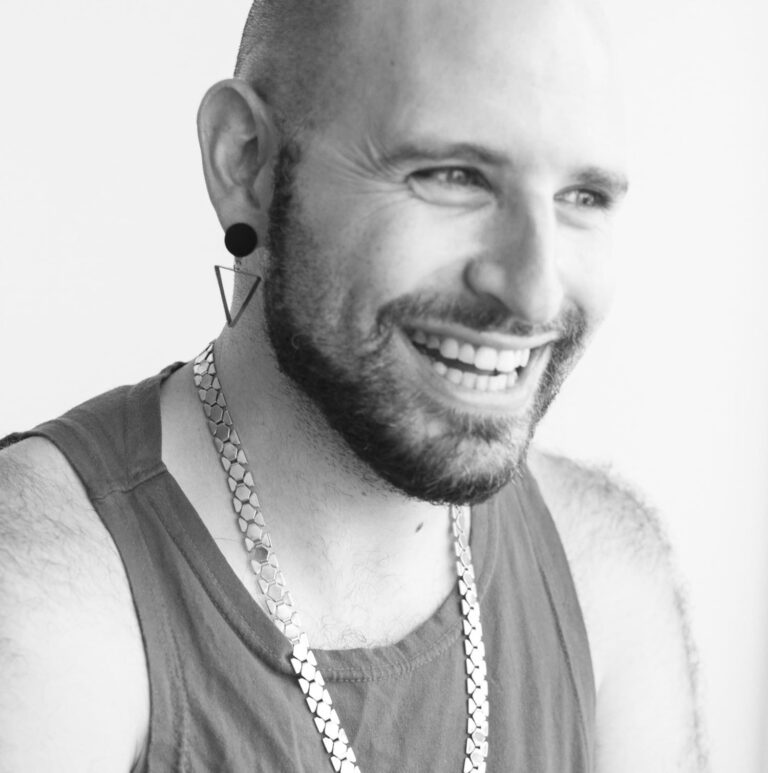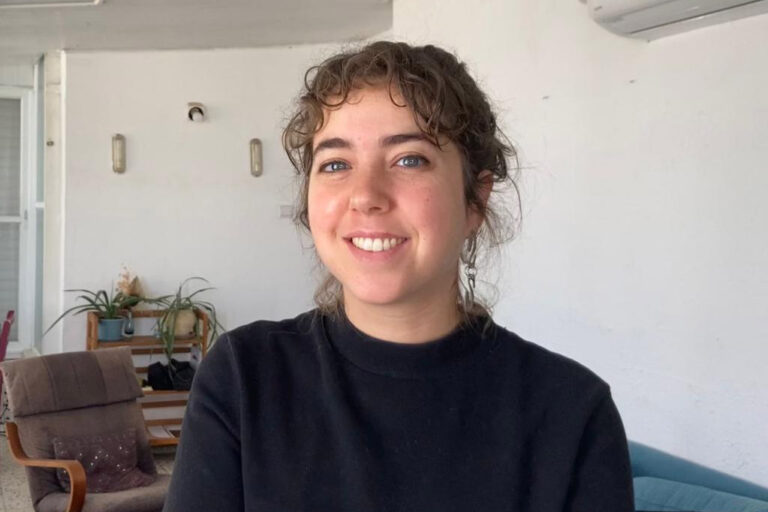
This past Tuesday marked International Women’s Day, a historical date commemorating women’s fight for equality in the home, workplace and political sphere, and laying out the struggles still to come. In Israel however, the day has been called “Woman’s Day” in recent years, and mainly features “indulgences:” sales on flowers and chocolate, hair and makeup workshops, and how-to’s for public speaking or individual empowerment.
“Women’s Day 2022 is an opportunity to stop these indulgences that preserve oppression,” said Tal Sharon Barnea, a co-creator of a new initiative aiming to create a different discourse on the subject of gender, along with Itai Amdursky.
“Today, Woman’s Day is mainly seen as a treat for a woman, which preserves the place of women and does not allow for social change and critical thinking about inequality,” Sharon Barnea explained. “We want the day to be significant for Israeli society.”
Amdursky and Sharon Barnea are educational coordinators at the Legaat B’zeh (“Touch It” in Hebrew) Center for Sex and Gender Education. They they created the exhibit together, explores themes including the history of feminism, and women’s struggle against economic, workplace and domestic violence today.
According to them, the exhibit is a tool for creating a new conversation that will honestly address the inequality between men and women and propose feminism as everyone’s struggle.
“In recent years, there has been a lively gender discourse that creates high tension,” Amdursky said. “We have noticed that the spaces in which the discourse takes place are aggressive. There are a lot of fluctuations in them, it can be difficult to talk about them, how to deal with them and how to know in which direction to take things.”
“A lot of the discourse [on gender] in society is conducted either through the courts or from the media, and there are not many places where it can be talked about,” Sharon Barnea said. “But all of us, men and women, are on the same side, and we wanted to create a place to talk about it together. The exhibit is a place to incorporate more dialogue.”
Amdursky and Sharon Barnea set up a Facebook group ahead of the exhibit’s launch called “Bringing Back Women’s Day.”

“The phrase ‘bringing back’ reminds us of the origins of this day, which began with a workers’ struggle,” said Amdursky, adding that senior women in academia have also initiated a petition this year to change the name to Women’s Day.
“The call to change the name, which is shared by other organizations, stemmed from the desire to change the character of the day. All over the world it is called Women’s Day,” he continued. “The name ‘Woman’s Day’ emphasizes the individual woman who can succeed against all odds, while Women’s Day is shared. How do we deal with the same elements that affect every woman?”
Sharon Barnea added that the perception of Women’s Day as an opportunity for “empowerment” does not fit her understanding of feminism.

“Most of our society encourages men to succeed, while women need to work harder,” she said. “If we empower women by saying ’women can do anything, both take care of the home and be a successful woman,’ then we can not break the barriers that a woman faces in society.”
The exhibition is mobile, and can be booked, along with educational instructors, at a cost of 900 shekels per day. It is only one part of an educational toolbox offered by the center.
“Our toolbox allows any educator to make the subject accessible in an interesting way. The exhibit can be run at workplaces, schools, from first grade to sheltered housing,” Amdursky said. “We try to create an environment beyond the exhibit, including workshops and educational programs.”
According to Sharon Barnea, patriarchal society oppresses both women and men.
“We all need to talk about the whole social structure, and think about how it can be possible for life together to look different, for people to be who they are,” she said.
This article was translated from Hebrew by Lily Sieradzki.






